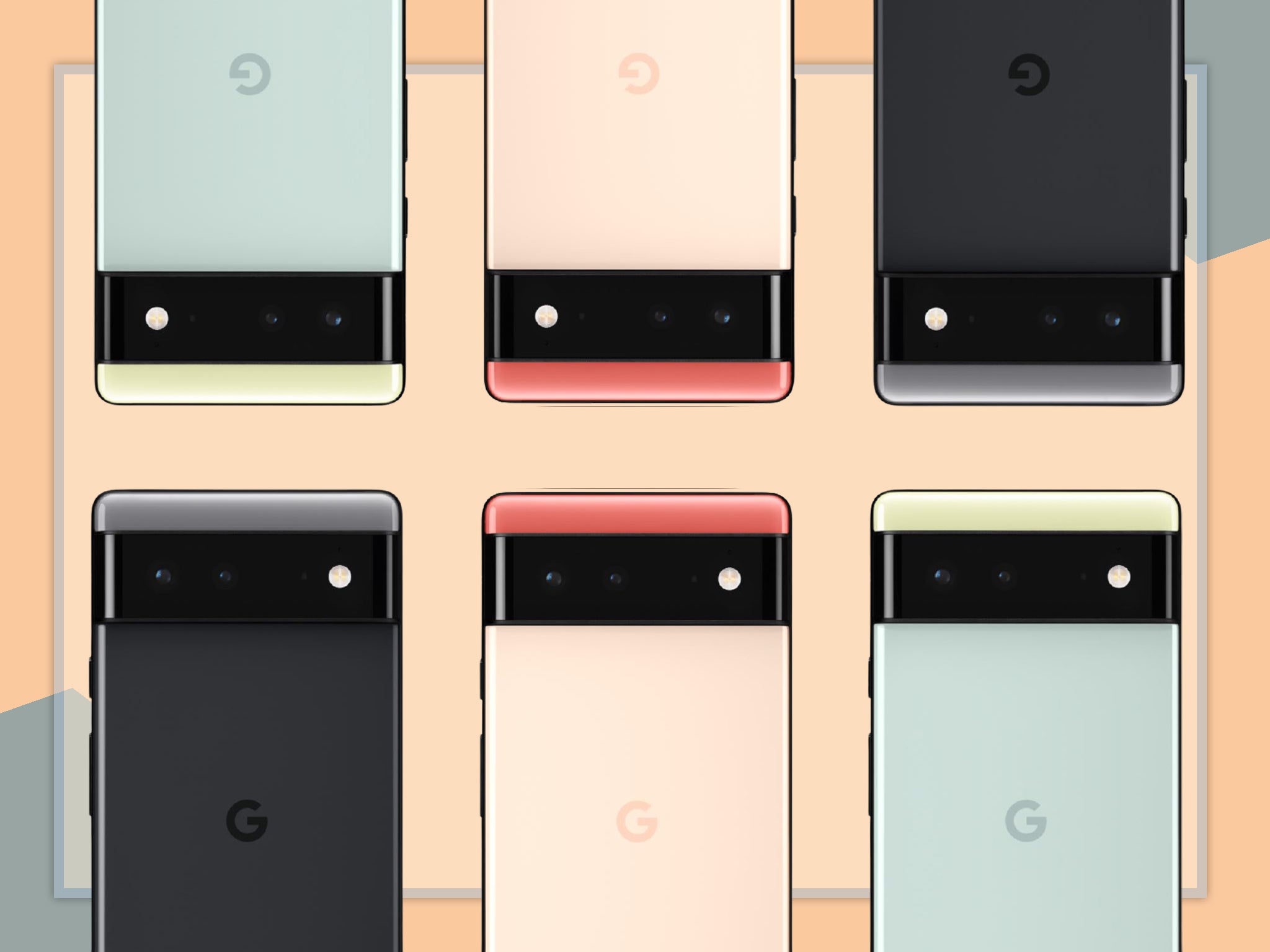Google launches Pixel 6 and 6 Pro flagship phones with better AI, Android 12, and an iconic camera bump
The new phones prioritise on-device machine learning - in Google Assistant, its cameras, and its translation functions

Your support helps us to tell the story
From reproductive rights to climate change to Big Tech, The Independent is on the ground when the story is developing. Whether it's investigating the financials of Elon Musk's pro-Trump PAC or producing our latest documentary, 'The A Word', which shines a light on the American women fighting for reproductive rights, we know how important it is to parse out the facts from the messaging.
At such a critical moment in US history, we need reporters on the ground. Your donation allows us to keep sending journalists to speak to both sides of the story.
The Independent is trusted by Americans across the entire political spectrum. And unlike many other quality news outlets, we choose not to lock Americans out of our reporting and analysis with paywalls. We believe quality journalism should be available to everyone, paid for by those who can afford it.
Your support makes all the difference.Google has finally announced the new Pixel 6 and Pixel 6 Pro, its dual flagship phones intended to take on Samsung and Apple.
“The product is really, now, The Google Phone,” Google’s hardware chief Rick Osterloh has said, “so we are ready to invest a lot in marketing and we want to grow.”
The two phones, which were revealed in full at an event today, focus on Google’s machine learning capabilities with a new Tensor SSC chip and its recently released Android 12 operating system, to make what Google claims is the “most personal and most helpful phone”.
With regards to the device’s specifications, the Pixel 6 has a 6.4-inch 60-90Hz OLED display, a 4600mAh battery, 8GB of RAM with 128 or 256GB of storage. The Pixel 6 Pro, meanwhile, has a larger 6.7-inch OLED with a 120Hz refresh rate screen. It comes with 12GB of RAM and a base 128GB of storage that can go up to 512GB, and a 5000mAh battery.
Both phones have a 50MP main sensor and an f/2.2 12MP ultrawide, but the Pixel 6 Pro also has a 48MP telephoto lens capable of 4x optical zoom and 20x digital zoom. There is also a slight difference with the selfie cameras: an 8MP lens for the standard 6, and a 11.1MP one on the Pixel 6 Pro.
Under the screen is a fingerprint sensor – as Google seems to have moved away from the face ID and motion-based Soli chip incorporated into the Pixel 4 – in a body that is IP68 water and dust resistant.
The most significant addition to the device is Google’s Tensor chip, which is made to run the company’s machine learning models. The chip is custom-made with a single image processor, and all processing is done on device – meaning the data is not sent through Google’s servers.
This chip powers features such as Google Lens, speech recognition – for both typing and Google Assistant – as well as photo editing. Google is rolling out a new motion mode which combines multiple shots taken in an instance, detects what is moving and what is still, and adds blur accordingly, as well as a face unblur feature.
There is also a tool to erase people and objects in the background that might clutter an image, similar to the Magic Eraser feature first mentioned in 2017, but was unavailable on phones until now.
Those artificially intelligent features come packaged in Material You, the design aesthetic for Android 12. This has been available for Pixel devices, like the Pixel 5, for some time - and Google says that there will be more device-specific updates for the operating system as it develops.
The main focus of Material You is updating widget and button palettes to match the colours in the phone’s background image. There is also a beta mode which gives Google’s software icons (Maps, Gmail, and so on) a pastel aesthetic that will fit better with the phone’s background.
Google also says these changes will come for third-party apps eventually, but for now they stand distinct against the bright colours of standard apps like Instagram and WhatsApp.
Other changes include making notifications and the quick-settings functions that appear when users swipe down from the top of the screen more rounded and larger, and smart home controls are no longer in the power menu but have their own button on the lock screen along with Google Pay.
The Pixel 6 will start at £599, while the Pixel 6 Pro will start at £849.
Join our commenting forum
Join thought-provoking conversations, follow other Independent readers and see their replies
3Comments